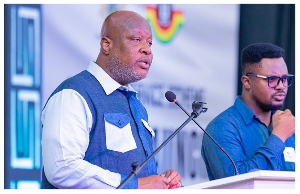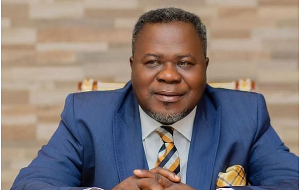The Western Regional Director of the National Commission on Civic Education (NCCE), Mr. Samuel Bonyah, has called on the government to halt the setting up of the National Reconciliation Commission (NRC).
He has instead suggested to the government to logistically equip the Commission on Human Rights and Administrative Justice (CHRAJ) and also improve upon conditions of service for the staff, who have handled similar cases before and, therefore, have the experience to handle cases that would be brought by aggrieved people who think they have been wronged by successive governments.
Bonyah, who was speaking at a public forum organized in Takoradi last Thursday by Legal Resources Centre, a non-governmental human rights organization, to debate on the National Reconciliation bill which is currently before Parliament said before the government can set up the proposed commission, it would have to put in place the necessary logistics in terms of personnel and resources which to him will be waste of money when CHRAJ could have been empowered to do so to save money.
If CHRAJ is logistically equipped and the condition of service for the staff is improved, they would be spurred to carry out the exercise since they already have the experience instead of setting up a new commission, which would be a waste of resources, he said.
A former Member of Parliament (MP) for Takoradi, Ms Tabith Quaye who also spoke at the forum supported the idea that CHRAJ should be empowered to handle the cases in place of the proposed commission.
She, however, protested against Section 11 of the bill which empowers the proposed commission to enter into one's premises to search without a warrant.
The said section reads: "where in the opinion of the commission obtaining a warrant will defeat the purposed of entry, seizure and removal of any article relevant to the investigations, enter, search, seize and remove the article without a warrant except that the warrant shall be obtained within twenty-four hours."
According to Tabitha Quaye, if the aim and objective of the commission is to promote national reconciliation then the suggestion in the bill that search could be conducted in one's house without a search warrant would defeat the very aim and objective of the commission.
The greater number of speakers at the forum supported the empowerment of CHRAJ to handle cases instead of setting up a new commission altogether.
These speakers further contended that since CHRAJ has offices in almost all the regional and district capitals, it would be easier for those who have any grievances to approach any of these offices and lodge their complaints instead of travelling all the way to Accra.
The suggestion that CHRAJ should be allowed to handle cases instead of the proposed commission brought Mrs. Amua-Sekyi who works with CHRAJ office in Takoradi to her feat.
According to her, CHRAJ is already saddled with so many cases therefore, it would be impossible for it to take over the work of the proposed reconciliation commission.
Besides, she continued, the Act that sets up the commission does not allow it to handle cases that are more than one year.
Therefore, since the work of the proposed commission is to handle cases that happened some years back, CHRAJ has no legal power to look into it when the Act has not been amended.
The former president of the Western Region branch of the Ghana Bar Association (GBA), Mr. Bodza-Lumor who chaired the function said if the people of Ghana are of the opinion that CHRAJ should be allowed to handle the cases then the Act that sets up the CHRAJ should be amended under the certificate of urgency by Parliament which had already carried out similar amendments, this year.
Addressing the forum earlier, the Western Regional Minister, Hon. Joseph Boahen Aidoo said the political history of Ghana has been characterized by elements of exclusion, polarization, seclusion and divide and at various points in time which has left foot-prints of bitterness, hatred, and enmity among Ghanaians.
As a result of these instances, it is very difficult to forget, but as human beings we should be able to forgive to heal the sores of the past within the body politic in Ghana, he added.
The Executive Director of the Legal Resources Centre, Mr. Abdulai Mohammed Ayariga, on his part, said the setting up of the commission to enable people air their grievances has become necessary due to the existence of the Indemnity Clause in the Constitution and expressed the hope that the public would patronize it to put their grievances across.












